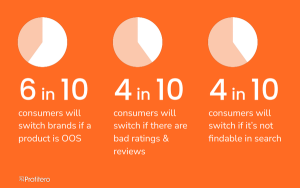Economic Data Predicts Uneven Growth

Consumer retail interest has begun to “sputter” despite an increase of activity, according to economic index data released Tuesday from Zeta Global.
The Zeta Economic Index (ZEI), powered by generative AI (GAI), debuted in June. On Tuesday the company released July’s numbers. GAI is used to analyze trillions of behavioral signals and then score economic sentiment, trends, and dynamics to analyze the U.S. economic outlook.
July’s data shows shows slowing growth by analyzing consumer attitudes and activities of 240 million U.S. adults. Categories include Discretionary Spend Propensity, Time Browsing Online, Retail Sales Activity and Retail Visitation Index.
- Economic Index Score: Increased by 0.3% to 66.7 in July, from 67.1 in June. The company defined the score as Active because of its “robust” economic activity with healthy growth across a variety of sectors.
- Economic Stability Index: Increased by 0.3% from the previous quarter to 66.1 and is defined as Stable.
David A. Steinberg, co-founder, chairman and chief executive officer at Zeta Global, explains that the index suggests the economy continues to grow, although more slowly — at least during July.
While consumer activity and spending patterns trend higher across various industries, a slight decline in job market sentiment and a slowdown in particular sectors suggests economic growth will be uneven.
A slowdown in the U.S. economy is expected. The data indicates “rough waters” for retail marketers ahead of the holiday season and during quarterly earnings.
Today, Zeta introduced scores to offer for Retail Sales Activity, Automotive Purchase Intent, and Retail Visitation Index to provide a deeper understanding of how consumer behavior affects the U.S. economy.
The index, which offers a lot of detailed data, also highlights scores for Automotive, Dining, Entertainment, Financial Services, Healthcare, Retail, Technology, and Travel-present a month-over-month comparison of interest levels. This detailed analysis helps identify areas of strength and opportunity within the economy.
Zeta’s GAI chatbot on the site attributed the modest growth to “marginal increases in consumer spending, nonresidential fixed investment, and government spending, with GDP growth annualized at 2.8% in Q2 2024, up from 1.4% in Q1. The slowdown in July was largely due to lower-than-expected job outlooks, mixed results from major earnings reports, and a shift in discretionary spending in the last two weeks of the month.”
The chatbot also points to the Automotive Index, which rose by 5.1 points month-over-month, driven by heightened consumer demand, innovative market offerings, and policy support such as the electric vehicle (EV) incentives introduced in early 2024.”
Retail sales saw a marginal increase due to events like Amazon Prime Day and back-to-school promotions, underscoring the influence of sales and promotional activities on monthly growth.
The travel sector, however, experienced a decline in interest following a peak in June. The Index goes on to define the dining sector as “sluggish, with no discernible month-over-month improvement from previous lows suggesting consumer preferences towards convenience and delivery services, as well as the lingering effects of inflation on food prices.”
(3)



